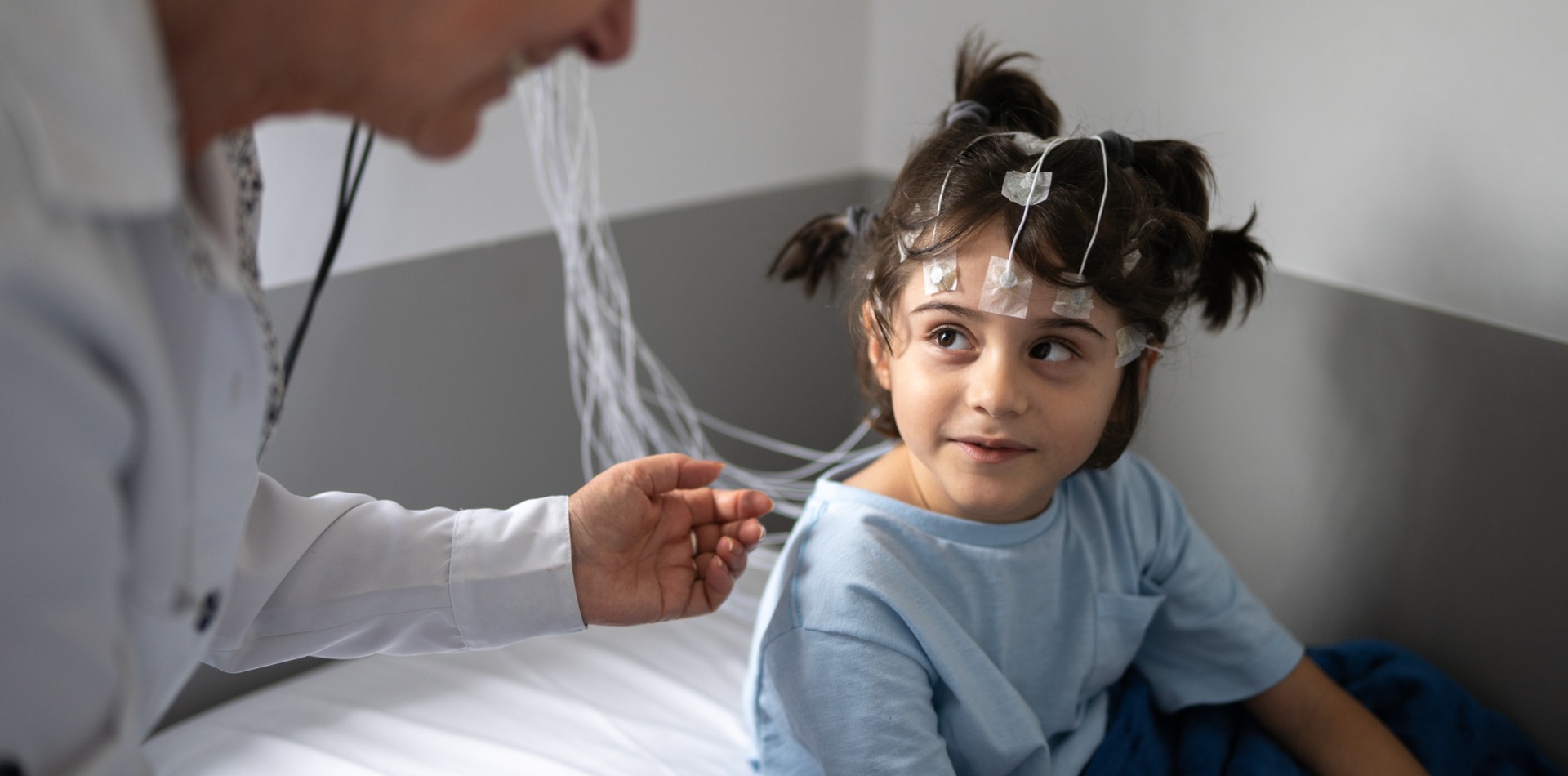Pediatric Neurologist
Pediatric neurologist
The discipline of child neurology encompasses diseases and disorders of the spinal cord, brain, peripheral nervous system (PNS), autonomic nervous system (ANS), muscles, and blood vessels that affect individuals in these age groups.
If a child has problems that involve the nervous system, a pediatric neurologist has the specialized training and knowledge to assess, diagnose, and treat the child. The conditions dealt with by pediatric neurologists vary considerably, from relatively simple disorders such as migraines or cerebral palsy to more complex and rare conditions such as metabolic diseases or neurodegenerative disorders.

We provide comprehensive care to children with developmental, behavioural, and neurological issues at NIMS Hospital, and we are supported by a highly qualified team for paediatric neurology, allied services, and neurorehabilitation. Neurosurgery may be performed in exceedingly rare circumstances to keep the infant safe.
Our team of neurologists specializes in providing precise diagnosis and appropriate treatment for neurological disorders like Childhood Epilepsy, Febrile Seizures, Autism Spectrum Disorders, Muscle problems like Muscular Neuropathy or Dystrophy, Behavioral disorders like Tics, ADHD, Sleep Problems, Headaches including Concussions and Migraines, Cerebral Palsy, Delayed Motor Milestones and Delayed Speech, interventional procedures, and treatment of numerous super refractory status epilepticus managed with inhalational anesthetic agents.
NIMS Hospital's Pediatric Neurology Department treats the following conditions:
- Epilepsy in childhood – Febrile seizures – Autism spectrum disorders
- Muscle problems such as muscular neuropathy or dystrophy – Behavioral disorders such as tics, ADHD, and sleep issues
- Concussions and migraines are examples of headaches.
- Intellectual handicap
- Coordination problems, cerebral palsy, delayed motor milestones, and delayed speech are examples of developmental disorders.
- Traumatic Brain Injury (TBI) (TBI)
- The Stroke
- Congenital nervous system malformations – Congenital birth defects affecting the spinal cord and brain, such as spina bifida
- Tumors of the brain
- Brain inflammation or infection
- Autoimmune disorders such as multiple sclerosis – Nervous system genetic conditions
- Abnormal mental development, learning disabilities, and speech impairments – Head injuries and the complications that come with them
- Hospice and palliative medicine
- Water on the brain (fluid build-up in the brain)
- Neurovascular Vascular
Why Choose Us?
The NIMS Hospital provides the greatest and most modern neurology diagnosis and treatment for children, infants, and teenagers.
Neurology doctors at NIMS Hospital use cutting-edge technology and equipment to treat brain and other neurological illnesses.
For effective treatment and achieving the required medical outcomes, we have highly qualified paediatric neuro physicians, neurosurgeons, certified nurses, and well-trained medical staff.
These nervous system disorders are extremely fragile, especially in children. As a result, the SPS Hospitals give each child with individualized care and compassion.

FAQ
A pediatric neurologist is a medical doctor who specializes in the diagnosis and treatment of neurological disorders in children, including disorders of the brain, spinal cord, and nerves. They are trained to identify and manage a wide range of conditions, such as epilepsy, cerebral palsy, developmental delays, and migraines.
You should take your child to see a pediatric neurologist if they are experiencing any neurological symptoms, such as seizures, headaches, weakness, or developmental delays. A pediatric neurologist can also help if your child has been diagnosed with a neurological disorder and needs ongoing management and care.
During a visit to a pediatric neurologist, your child will typically undergo a neurological examination to assess their brain and nervous system function. The pediatric neurologist may also order diagnostic tests such as electroencephalography (EEG), magnetic resonance imaging (MRI), or nerve conduction studies to help diagnose the condition. After the examination and testing, the pediatric neurologist will provide you with a diagnosis and a treatment plan, which may include medication, therapy, or surgery if necessary. The pediatric neurologist will also provide ongoing follow-up care to monitor your child's progress and adjust treatment as needed.
